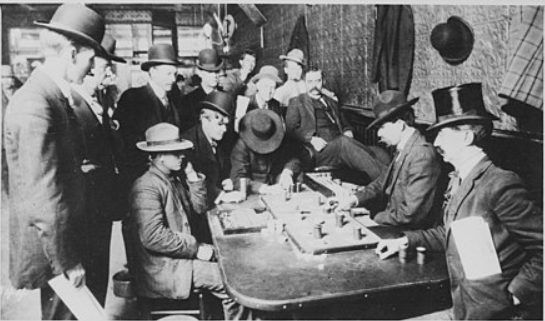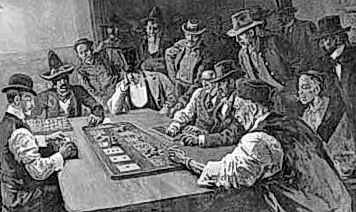Gambling in Newfoundland and Labrador has evolved significantly over the years, reflecting broader trends in Canadian gambling regulations and societal attitudes. This detailed account explores the development of gambling in the province, focusing on key events, legislative changes, and the current state of gambling activities.

Early Beginnings and Legalization
The history of gambling in Newfoundland and Labrador can be traced back to the early 20th century. Pari-mutuel betting, a form of betting on horse races, was legalized in Canada in 1910. However, it wasn’t until the 1960s that the province saw its first betting venue, the St. John’s Racing and Entertainment Centre. Despite this early start, gambling activities remained limited for several decades due to strict provincial regulations and funding challenges.
The Introduction of Lotteries and Video Lottery Terminals (VLTs)
A significant milestone occurred in 1976 when Newfoundland and Labrador introduced its first lottery game. The same year, the Atlantic Lottery Corporation (ALC) was established, serving the Atlantic provinces, including Newfoundland and Labrador. This development marked the beginning of regulated lottery gambling in the province.

The 1980s saw further liberalization of gambling laws across Canada, allowing provinces to regulate and expand their gambling industries. While other provinces quickly embraced land-based casinos, Newfoundland and Labrador chose a more conservative approach. In 1991, the province introduced Video Lottery Terminals (VLTs), but restricted their placement to venues with alcohol licenses. The number of VLTs was capped at five per venue in 1996, and the government continued to tighten regulations to curb gambling addiction and social issues.
Attempts at Casino Development and Modern Changes
Despite the nationwide trend towards land-based casinos, Newfoundland and Labrador remained one of the few provinces without a casino. The closure of the Argentia Naval Base in 1994, the only place where slot machines were available, highlighted the province’s reluctance to embrace casino gambling. In 2010, the sale of the Battery Hotel and Suites sparked discussions about developing a casino, but the provincial government doubled down on its ban, maintaining its strict stance against land-based casinos.
In 2021, the legalization of single-event sports betting in Canada marked another significant shift. Newfoundland and Labrador quickly adopted this change, allowing residents to place bets on individual games through the Pro-Line platform operated by the Atlantic Lottery Corporation. This move expanded the province’s gambling options, reflecting the growing acceptance of sports betting across the country.
Online Gambling and Current Landscape
Today, Newfoundland and Labrador permits various forms of gambling, albeit with stringent regulations. While there are no land-based casinos, residents can participate in online gambling through the Atlantic Lottery Corporation’s website, ALC.ca, which offers lottery tickets, sports betting, and casino games like poker and slots. Additionally, offshore online casinos provide an alternative, although they operate in a legal grey area and are not regulated by Canadian authorities.
The provincial government continues to emphasize responsible gambling, with measures in place to reduce the number of VLTs and implement software changes to slow down gameplay. These efforts aim to minimize the negative social impacts of gambling while providing entertainment options for residents.
For more information:
